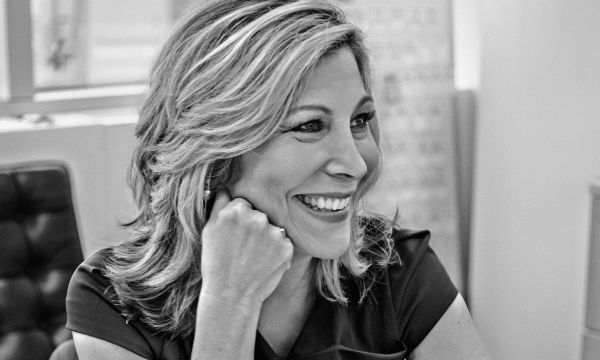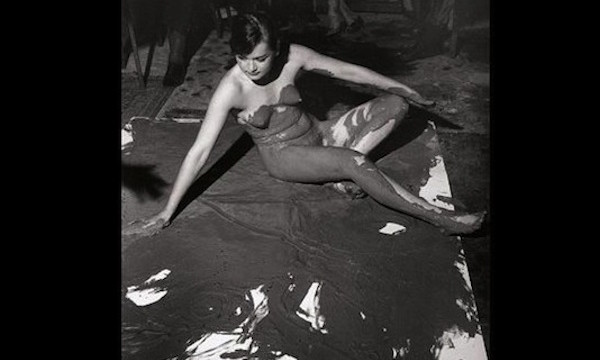
Shop This Look
What to Do If You Can't Find Your Passion
You don’t have to love your job, or baking, or anything really. Unless of course you want to.
Want more M Dash?
Sign up for our weekly newsletter.
Thank you!
Like many people, when it came to her future career, Abby grew up hearing platitudes like “Follow your passion!” or “Do what you love, and you’ll never work a day in your life!”
The 30-year-old currently teaches social studies at an all-boys high school in Cincinnati, Ohio, and while she likes her job, she frequently finds herself asking, “What if?”
She’s now in her eighth year of teaching. Does she want to be a teacher forever? She enjoys being around kids and can’t imagine herself in an office cubicle, but she also loves politics and is interested in nonprofit work. Should she have stayed in Washington, D.C., where she lived before moving back to Cincinnati to be closer to her family?
“I don’t know if what I’m doing right now is my passion,” she confesses. Then again, she doesn’t know exactly what her passion is.
“Is all this worth it if I’m not doing what I really love?” or “Should I take a risk and quit my job to pursue my true ‘passion’?”
Abby is not alone. For this piece, I read dozens of messages from women of varying ages and backgrounds echoing the same sentiment. When I asked what was holding them back from pursuing their “passion” as a career, their responses were similar: Money, guilt, fear, imposter syndrome, or feeling like it was “too late” to start a different path. While the question “Is my career really my passion?” isn’t a new conundrum, the pandemic seems to have women grappling with it more than ever before.
And it makes sense. Right now, life feels immeasurably difficult, with little to no relief. It’s no surprise that women are up at night wondering, “Is all this worth it if I’m not doing what I really love?” or “Should I take a risk and quit my job to pursue my true ‘passion’?”
But passion is a loaded word. The reality is, finding your passion is one challenge, but being able to afford to make your passion your day job is another. Quitting your corporate 9-5 to pursue painting full-time or travel the world sounds great, but it also requires an enormous amount of privilege.
Robin Stern, cofounder and associate director for the Yale Center for Emotional Intelligence, acknowledges this. She wants women to know that it’s okay if their careers aren’t their passions––or if they don’t have a passion at all.
“It’s wrong and so unhelpful to have people thinking that there’s something wrong with them if they’re not working a job they’re passionate about,” Stern says.
“It’s great if there’s something you love to do that you can get completely lost in, that brings you joy every day and elevates your mood just because you’re doing it,” she continues. “But there are so many people who don’t know what that is for them, and there are also people who know what it is, but can’t find a path to support themselves [financially] in that way.”
We spoke to Stern about the problem with getting too caught up in the word “passion,” why your passion doesn’t need to be your career, and how to look for fulfillment beyond your 9-5.
Focus on Meaning, Not “Passion”
Whether you have a passion or not, the term itself can conjure mixed feelings.
“It’s a word that invites self-criticism, and that’s what I don’t like about it,” says Stern. “If you don’t have a passion, should you then feel bad about yourself and spend nights worrying ‘Where’s my passion’? or ‘What’s wrong with me?’”
Instead, Stern recommends reframing the narrative. She believes the key is finding meaning in your work. For example, if what’s most meaningful to you is being a good mom or spending time with your kids, some people might say that’s your passion. The same can be applied to being a caring friend, living a healthy lifestyle, or being a mindful individual.

Yet if you are looking for a more “conventional” passion, Stern points out that you can find one through your interests or trying new activities, like joining a campaign if you’re interested in politics. These interests can turn into a passion, but they also don’t have to. The point is to try different things and see what sticks. Even if these passions don’t end up becoming your career, having them as part of your life can bring you joy and help you find meaning.
Don’t Force It
Whether you’re doubting your abilities to pivot your passion to a career, or you’re simply feeling bad for not having one at all, Stern wants you to imagine how you would speak to a friend.
“What questions would you ask to help the person get closer to the answer? Sometimes when people say, ‘Well, I don’t know what the answer is,’ I think the question is, ‘what do you need to know in order to find out the answer?’” says Stern.
Thanks to social media, it’s easy to compare ourselves to others. While your friends are baking fancy pastries that rival The Great British Baking Show or selling handmade tie-dye sweatsuits on Etsy, you might just be trying to get through the day. And sometimes, that’s enough.
“It’s hard enough in this life when sometimes it’s a struggle to put food on the table or to have an apartment or a home that’s comfortable enough for you and your family to live in, especially during Covid, when so many families are struggling,” says Stern. “Maybe it’s just not a time when you beat yourself up, in addition to everything else you’re coping with.”
It’s important to remember that everyone is on their own timeline, including you. You’ll find something you love or that brings you pleasure at some point, and it’s up to you to decide if you want to grow it into something bigger. Either way, the process of discovery shouldn’t be stress-inducing or painful.
Embrace Change and Evolution
Madeleine Albright didn’t begin her career in diplomacy until age 40. Ava DuVernay was a publicist before becoming a director. In her 20s, Ina Garten worked in nuclear energy policy for the White House. Just as it’s normal for your career to evolve, it’s natural for your interests and passions to evolve, as well.
“You could certainly have more than one passion and passions that change as you grow,” says Stern. “Things are meaningful to you at one time in your life, so you’re willing to put the energy into them. Then sometimes later, they’re not.” It’s okay to enjoy something for a period of time and then move on. Who knows? You might come back to it again.

Passion also doesn’t necessarily mean doing something new or exciting. There’s value in finding meaning in the ordinary, something many are discovering as a result of our lives drastically changing under Covid. Suddenly, mundane activities like spending time with your family or cooking meals can feel extraordinary. One can assume that once it’s safe to do so again, people will become “passionate” about traveling or taking vacation.
“People are going to be passionate about camping or going to the beach with their families,” points out Stern. “Or even just playing a board game with their extended families without masks on.”
Stay Curious and Open-Minded
It may sound cliché, but the only way you’ll know if you like something is if you try it. Only knowledge can help you figure out what you do and don’t want to do.
“Use your emotions as information,” says Stern. “‘I like it’ or ‘I don’t like it.’ ‘I want to do it again’ or ‘I don’t want to do it again.’ ‘I feel joyous when I’m doing it’ or “I feel unmoved.’
But beyond just “doing” it, Stern thinks it’s just as important to talk about the things you like with others.
“If you’re really interested in knowing ‘what is passion?’ and you feel like you want to get it, well, how do other people get it?” asks Stern. “Ask the people you know who are passionate about something, ‘How did you find that place in yourself?’” says Stern. “Because it’s not a thing, it’s a place inside of you.”








